
20 celebrations this holiday season besides Christmas
Explore how other religions and cultures celebrate their holidays.
- Subject:
- Education
- Social Studies
- Material Type:
- Primary Source
- Date Added:
- 11/25/2021

20 celebrations this holiday season besides Christmas
Explore how other religions and cultures celebrate their holidays.
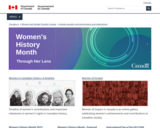
October is Women’s History Month in Canada, a time to celebrate the women and girls from our past, and our present, who are contributing to a better, more inclusive Canada.
In 1992, the Government of Canada designated October as Women’s History Month, marking the beginning of an annual celebration of the outstanding achievements of women and girls throughout Canada’s history. This year marks the 30th anniversary of Women’s History Month.
This year’s theme, She Did, So Now I Can, celebrates the actions of inspiring Canadian women that positively impact our lives today, right now, at this very minute. We are thankful for their courage and for inspiring us to do better.
The menu for this site includes links to explore:
- Women in Canadian History: A Timeline
- Women of Impact
- Women's History Month 2022
- International Day of the Girl Child - October 11
- Persons Day - October 18
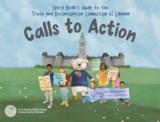
In 2008, a group called the Truth and Reconciliation Commission (TRC) was made. Their job was to listen
to stories about residential schools and then write the stories down so we can learn from our mistakes.
In 2015, the Truth and Reconciliation Commission announced their 94 Calls to Action. These are 94
activities all governments, courts, businesses, schools, and people living in Canada can do to help fix the
mistakes of the past and present so that all children – including First Nations, Métis, and Inuit children –
can grow up happy, healthy, safe, and proud of who they are.
This booklet is written by Spirit Bear as a youth-guide to the TRC’s 94 Calls to Action. Each of the calls is outlined in student-friendly language that will give them a deeper understanding of Truth and Reconciliation process.

Canadian Geographic Education provides learning resources to help improve students’ understanding of the world they live in. Geographically literate students are better prepared to face global challenges and have the skills necessary to become effective change agents. Use these resources to inspire curiosity and exploration in your classroom!
Lesson plans
Videos
Maps
Infographics
Activities

Find out how Christmas Traditions and how Christmas is celebrated in lots of different countries and cultures around the world!

Ten printable colouring pages which depict the numbers one through ten. Each page has a spelled-out number in Michif, the language of Métis Peoples’, as well as the numerical equivalence. There are also images of culturally significant items on each page, which correspond with the respective number. There are written instructions on the bottom of each page that indicate different activities that supplement the colouring pages.

Find a ton of pre-recorded virtual events from Flipgrid to use with your class.
There is something here for every age group, and every subject!
Enjoy exploring.
Find future Flipgrid events here (copy and paste into a browser) https://blog.flipgrid.com/upcomingflipgridliveevents

The Children’s Health and Well-being Measure (ACHWM) is a tool that gives Indigenous communities and organizations an overview of the health and well-being of children and youth in their communities.
The measure offers insight into children's Spiritual, Emotional, Physical, and Mental wellness.
The survey is completed on a tablet that engages children and acts as a catalyst for honest conversation. The results are shared with each child or youth in a visual form on the Balance Chart.

Indigenous games for children.

Indigenous people have long passed on knowledge from generation to generation through oral traditions, including storytelling. Storytelling teaches history, values, beliefs and ways of life.
Enjoy this series of oral stories told by Elder Hazel, where you'll hear all kinds of fascinating stories.

Videos, Podcasts, Quizzes!
Learn how anything works. It's all here from health, science, home/garden, auto, tech, money, lifestyle, enterainment, adventure, animals and more!

The Legacy of Hope Foundation is a very comprehensive site that offers lots of great resources that help to promote healing and Reconciliation in Canada. The Legacy of Hope Foundation's (LHF) goal is to educate and raise awareness about the history and existing intergenerational impacts of the Residential School System (RSS) and subsequent Sixties Scoop (SS) on Indigenous (First Nations, Inuit, and Métis) Survivors, their descendants, and their communities to promote healing and Reconciliation.Check out each of the sections to see the great resources they have to offer.
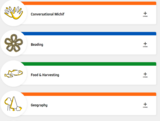
Métis culture will continue to be lived and celebrated when we pass our knowledge on to the generations who follow us.
Everyone is on a learning journey. While exploring historical and contemporary Métis ways of knowing and doing, these learning packages provide knowledge and understanding for students and teachers. Topics include: Traditional Harvesting Methods, Geographical Terms, Music and Dance, Conversational Michif, Beading, and Traditional Foods. The lesson plans and videos highlight Knowledge Keepers walking in the tall prairie grass, Elders preparing la galette (bannock), students learning Michif numbers, and family greeting each other for tea. We hope these resources will assist you in your learning.

Engaging lesson plans based on the Five Foundational Knowledge Themes. Educators have the opportunity to build their foundational knowledge while delivering Métis content through lessons that reflect promising practices.

The National Film Board of Canada's award-winning online Screening Room has over 3,000 productions.
Films on this site can be streamed free of charge, or downloaded for your personal use for a small fee. We also offer educational works on a subscription basis to schools and institutions.
Our Collection includes documentaries, animations, experimental films, fiction and interactive works. We showcase films that take a stand on issues of global importance that matter to Canadians—stories about the environment, human rights, international conflict, the arts and more.
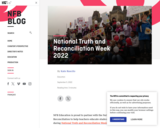
NFB Education is proud to partner with the National Centre for Truth and Reconciliation to help teachers educate students about Indigenous realities during National Truth and Reconciliation Week, as well as throughout the year.
This year, the theme of National Truth and Reconciliation Week is “Remembering the Children,” where we memorialize the children lost to the residential school system and honour Survivors and their families. The expanded program features age-appropriate material for students in Grades 1–12.
All sessions will be held virtually on Hubilo. Registration is required to stream live or pre-recorded sessions and to participate in the Q&A segment. The link for registration is provided on this page.

Newsela provides high-interest, printable news articles from a wide range of subject areas. Teachers can adjust the reading level of news articles to meet the needs of students. Within each article, power words are identified. Students can click on these and see the definition in student-friendly language. Newsela also provides writing prompts and questions about the articles. You can sign up for free access to the end of the 2019-20 school year. Although the site is American, there are lots of applicable news stories that align with Saskatchewan curricula and context.
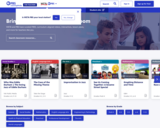
PBS has created and shared tons of media rich, engaging, digital lessons for a wide range of grade levels and subject areas.
Find FREE videos, interactives, lesson plans, and more just for teachers like you. Choose from lots of filters that will customize your search so you can find exactly what you're looking for.

Rupertsland Organization for Teaching and Learning has developed some excellent resources to learn about the Métis history in Alberta that are recommended for all educators. Resources are continually being added as they are created and approved in support of educators’ learning and teaching.
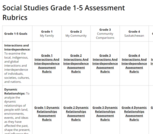
Social Studies assessment rubrics for every grade from Grade 1-9, for each unit.